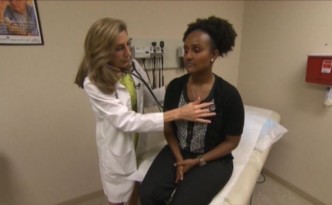Valeant CEO Pearson remains hospitalized for pneumonia: Bloomberg
Valeant Pharmaceuticals International Inc Chief Executive J. Michael Pearson has been moved to another hospital where he is being treated for a severe case of pneumonia, a company spokeswoman told Bloomberg on Sunday. Elaine Andrecovich, a public relations manager at Morristown Medical Center, where Pearson initially was admitted for treatment on Friday, confirmed that Pearson is not at the hospital but declined to provide more details. Laurie Little, a Valeant spokeswoman, told Bloomberg that Pearson is still in a hospital but declined to say where.


